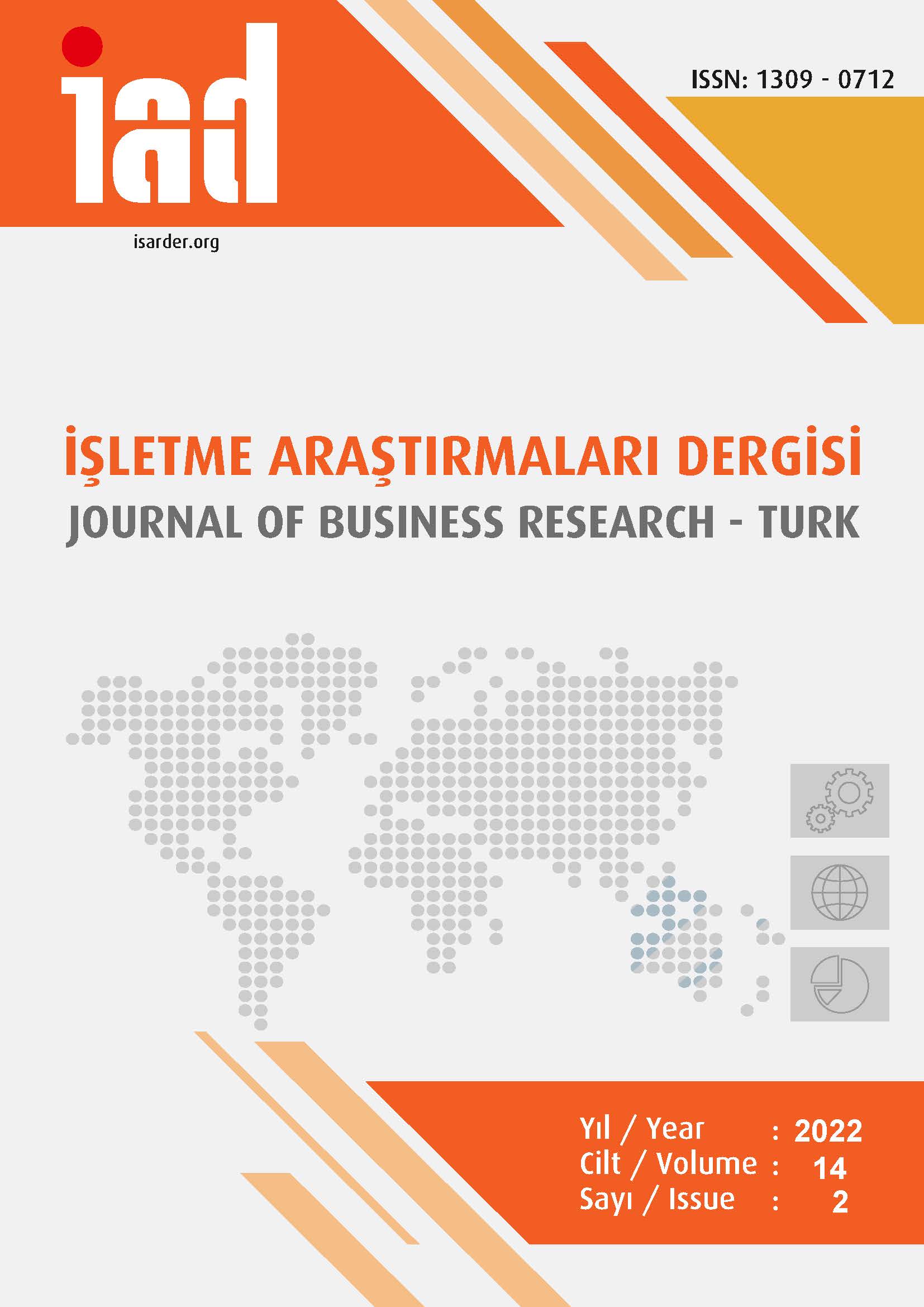Türkiye Bankacılık Sektöründe Takipteki Kredileri Etkileyen Faktörlerin Analizi
DOI:
https://doi.org/10.20491/isarder.2022.1432Anahtar Kelimeler:
Türkiye Bankacılık Sistemi- Takipteki Krediler- Vektör Otoregresyon (VAR)Özet
Amaç – Makro ihtiyati politika araçlarının hedeflerinden biri de ekonomiye kredi akışının sürmesini sağlamaktır. Tahsis edilen kredilerin geri ödenmemesi yeni kredi tahsislerini ve böylece kredi akışını sınırlar. Bankacılık sektöründe aktif kalitesinin bir göstergesi olan takipteki kredilerin nedenlerinin tespiti ve kontrolü bankalar açısından da hayati öneme sahiptir. Bu çalışmanın amacı, makro ekonomik değişkenler ile Türkiye Bankacılık Sektörü takipteki kredi hacmi arasındaki ilişkinin analiz edilmesidir. Yöntem – Çalışmanın kapsamı, Türkiye Bankacılık Sektörüdür (TBS). Bu çerçevede sektörde faaliyette bulunan bankaların takipteki kredi hacmi üzerinde etkili olduğu düşünülen dört değişken belirlenmiştir. Çalışmada kullanılan veri seti takipteki krediler ile birlikte, Sanayi Üretim Endeksi, bankalarca uygulanan ağırlıklı ortalama faiz oranları, kredi büyümesi ve döviz kuru değişkenlerinden oluşmaktadır. Değişkenlerin takipteki krediler üzerinde yaratmış olduğu etki VAR (Vektör Otoregresif) Modeli, granger nedensellik testi, etki-tepki analizleri ile incelenmiş ve analiz edilmiştir. Çalışmada kullanılan veriler BDDK, TCMB ve TÜİK veri tabanlarından elde edilmiş olup, analizde 2005-2019 dönemi ile sınırlı, aylık veriler kullanılmıştır. Bulgular – Bulgular, sanayi üretim endeksi değişimlerinin takipteki kredi değişimlerini açıklamada diğer değişkenlere kıyasla en önemli değişken olduğunu ve takipteki kredi değişimleri ile ters yönlü bir ilişki içinde olduğunu ortaya koymaktadır. Ayrıca, bankalarca uygulanan ağırlıklı ortalama faiz oranları, ortalama (USD ve Euro) döviz kurları ve canlı kredi değişimlerinin de takipteki kredi değişimleri üzerinde etkili olduğu ve bu değişkenler ile takipteki kredi değişimleri ilişkisinin aynı yönlü olduğunu göstermektedir. Tartışma – Banka grupları ve/veya kredi türleri itibariyle takibe dönüşümde etkili olan faktörler farklılaşabilir. Bu nedenler üzerinde yoğunlaşan farklı politika araçları uygulanabilir.
İndir
Yayınlanmış
Nasıl Atıf Yapılır
Sayı
Bölüm
Lisans

Bu çalışma Creative Commons Attribution-NoDerivatives 4.0 International License ile lisanslanmıştır.





